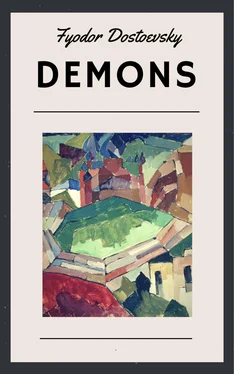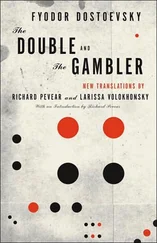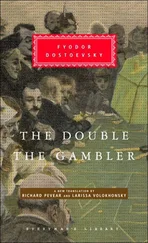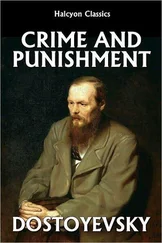“You are no doubt aware, excellente amie ,” he said, jauntily and coquettishly drawling his words, “what is meant by a Russian administrator, speaking generally, and what is meant by a new Russian administrator, that is the newly-baked, newly-established … ces interminables mots Russes! But I don’t think you can know in practice what is meant by administrative ardour, and what sort of thing that is.”
“Administrative ardour? I don’t know what that is.”
“Well … Vous savez chez nous … En un mot, set the most insignificant nonentity to sell miserable tickets at a railway station, and the nonentity will at once feel privileged to look down on you like a Jupiter, pour montrer son pouvoir when you go to take a ticket. ‘Now then,’ he says, ‘I shall show you my power’ … and in them it comes to a genuine, administrative ardour. En un mot, I’ve read that some verger in one of our Russian churches abroad— mais c’est très curieux —drove, literally drove a distinguished English family, les dames charmantes , out of the church before the beginning of the Lenten service … vous savez ces chants et le livre de Job … on the simple pretext that ‘foreigners are not allowed to loaf about a Russian church, and that they must come at the time fixed.…’ And he sent them into fainting fits.… That verger was suffering from an attack of administrative ardour, et il a montré son pouvoir .”
“Cut it short if you can, Stepan Trofimovitch.”
“Mr. von Lembke is making a tour of the province now. En un mot, this Andrey Antonovitch, though he is a russified German and of the Orthodox persuasion, and even—I will say that for him—a remarkably handsome man of about forty …”
“What makes you think he’s a handsome man? He has eyes like a sheep’s.”
“Precisely so. But in this I yield, of course, to the opinion of our ladies.”
“Let’s get on, Stepan Trofimovitch, I beg you! By the way, you’re wearing a red neck-tie. Is it long since you’ve taken to it?”
“I’ve … I’ve only put it on to-day.”
“And do you take your constitutional? Do you go for a four-mile walk every day as the doctor told you to?”
“N-not … always.”
“I knew you didn’t! I felt sure of that when I was in Switzerland!” she cried irritably. “Now you must go not four but six miles a day! You’ve grown terribly slack, terribly, terribly! You’re not simply getting old, you’re getting decrepit.… You shocked me when I first saw you just now, in spite of your red tie, quelle idee rouge ! Go on about Von Lembke if you’ve really something to tell me, and do finish some time, I entreat you, I’m tired.”
“ En un mot, I only wanted to say that he is one of those administrators who begin to have power at forty, who, till they’re forty, have been stagnating in insignificance and then suddenly come to the front through suddenly acquiring a wife, or some other equally desperate means.… That is, he has gone away now … that is, I mean to say, it was at once whispered in both his ears that I am a corrupter of youth, and a hot-bed of provincial atheism.… He began making inquiries at once.”
“Is that true?”
“I took steps about it, in fact. When he was ‘informed’ that you ‘ruled the province,’ vous savez, he allowed himself to use the expression that ‘there shall be nothing of that sort in the future.’”
“Did he say that?”
“That ‘there shall be nothing of the sort in future,’ and, avec cette morgue .… His wife, Yulia Mihailovna, we shall behold at the end of August, she’s coming straight from Petersburg.”
“From abroad. We met there.”
“Vraiment?”
“In Paris and in Switzerland. She’s related to the Drozdovs.”
“Related! What an extraordinary coincidence! They say she is ambitious and … supposed to have great connections.”
“Nonsense! Connections indeed! She was an old maid without a farthing till she was five-and-forty. But now she’s hooked her Von Lembke, and, of course, her whole object is to push him forward. They’re both intriguers.”
“And they say she’s two years older than he is?”
“Five. Her mother used to wear out her skirts on my doorsteps in Moscow; she used to beg for an invitation to our balls as a favour when my husband was living. And this creature used to sit all night alone in a corner without dancing, with her turquoise fly on her forehead, so that simply from pity I used to have to send her her first partner at two o’clock in the morning. She was five-and-twenty then, and they used to rig her out in short skirts like a little girl. It was improper to have them about at last.”
“I seem to see that fly.”
“I tell you, as soon as I arrived I was in the thick of an intrigue. You read Madame Drozdov’s letter, of course. What could be clearer? What did I find? That fool Praskovya herself—she always was a fool—looked at me as much as to ask why I’d come. You can fancy how surprised I was. I looked round, and there was that Lembke woman at her tricks, and that cousin of hers—old Drozdov’s nephew—it was all clear. You may be sure I changed all that in a twinkling, and Praskovya is on my side again, but what an intrigue!”
“In which you came off victor, however. Bismarck!”
“Without being a Bismarck I’m equal to falseness and stupidity wherever I meet it, falseness, and Praskovya’s folly. I don’t know when I’ve met such a flabby woman, and what’s more her legs are swollen, and she’s a good-natured simpleton, too. What can be more foolish than a good-natured simpleton?”
“A spiteful fool, ma bonne amie, a spiteful fool is still more foolish,” Stepan Trofimovitch protested magnanimously.
“You’re right, perhaps. Do you remember Liza?”
“Charmante enfant!”
“But she’s not an enfant now, but a woman, and a woman of character. She’s a generous, passionate creature, and what I like about her, she stands up to that confiding fool, her mother. There was almost a row over that cousin.”
“Bah, and of course he’s no relation of Lizaveta Nikolaevna’s at all.… Has he designs on her?”
“You see, he’s a young officer, not by any means talkative, modest in fact. I always want to be just. I fancy he is opposed to the intrigue himself, and isn’t aiming at anything, and it was only the Von Lembke’s tricks. He had a great respect for Nicolas. You understand, it all depends on Liza. But I left her on the best of terms with Nicolas, and he promised he would come to us in November. So it’s only the Von Lembke who is intriguing, and Praskovya is a blind woman. She suddenly tells me that all my suspicions are fancy. I told her to her face she was a fool. I am ready to repeat it at the day of judgment. And if it hadn’t been for Nicolas begging me to leave it for a time, I wouldn’t have come away without unmasking that false woman. She’s been trying to ingratiate herself with Count K. through Nicolas. She wants to come between mother and son. But Liza’s on our side, and I came to an understanding with Praskovya. Do you know that Karmazinov is a relation of hers?”
“What? A relation of Madame von Lembke?”
“Yes, of hers. Distant.”
“Karmazinov, the novelist?”
“Yes, the writer. Why does it surprise you? Of course he considers himself a great man. Stuck-up creature! She’s coming here with him. Now she’s making a fuss of him out there. She’s got a notion of setting up a sort of literary society here. He’s coming for a month, he wants to sell his last piece of property here. I very nearly met him in Switzerland, and was very anxious not to. Though I hope he will deign to recognise me. He wrote letters to me in the old days, he has been in my house. I should like you to dress better, Stepan Trofimovitch; you’re growing more slovenly every day.… Oh, how you torment me! What are you reading now?”
Читать дальше












